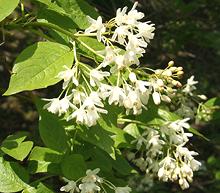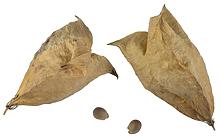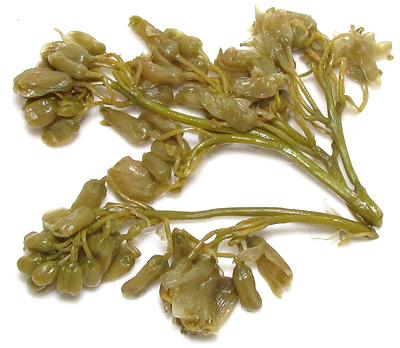

This is a light brine pickle with an interesting and unusual lightly floral taste, remotely suggestive of capers. It is often served with chopped red onion, olive oil, pepper, and sometimes other pickled vegetables. It is considered a "must have" for a Georgian supra (traditional feast table). They are similarly served in Armenia and in Georgian restaurants in Russia. In Georgia they are sometimes used as a garnish for Georgian Lobiana (Bean Soup).
Buying: Here in Southern California pickled Jonjoli are occasionally available in markets serving a Georgian / Armenian community, usually labeled "Capers in Brine". Well, they are pickled in brine, but they certainly aren't capers, nor related to capers. The photo specimens were purchased in a 26 ounce jar from a multi-ethnic market in Los Angeles (Sunland) for 2016 US $5.69 for the jar. Ingred: "Capers", salt, garlic, wine vinegar, pepper, spices. If you want to buy them on-line, search for "Georgian Capers".
Photo of Jonjoli flowers by Michael Wolf distributed
under license Creative Commons
Attribution 3.0 Unported.
Photo of Jonjoli seeds and pods by
Muséum de Toulouse distributed under license Creative Commons
Attribution 3.0 Unported.
 [Colchis Bladdernut, Caucasian Bladdernut; Jonjol (Armenia);
Staphylea colchica]
[Colchis Bladdernut, Caucasian Bladdernut; Jonjol (Armenia);
Staphylea colchica]